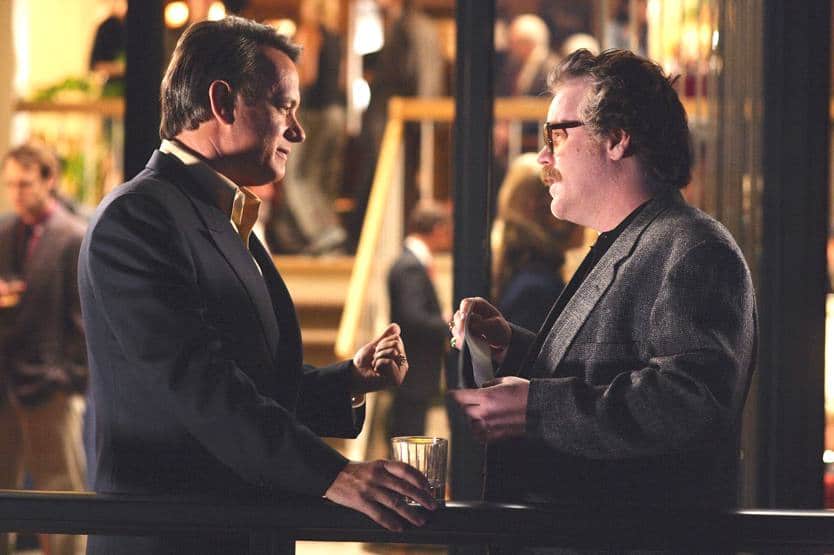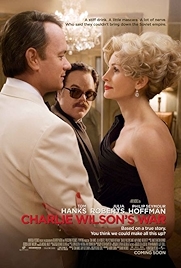A movie for every day of the year – a good one
3 July
President Carter agrees to topple the Afghanistan government, 1979
On this day in 1979, a US president whose reputation seems to rest on his profound desire to avoid conflict (see the Iran hostages crisis, a story told in Argo), signed a directive which would provide secret aid to opponents of the government in Kabul. The government, controlled by the People’s Democratic Party of Afghanistan (PDPA) was pro-Soviet and socialist, and Carter’s help consisted of funding the Peshawar Seven, one of two groups collectively known as the Mujahideen (the other, the Tehran Eight, was funded by Iran). The intention was to roll back Soviet influence in the area, after Soviet forces had entered the country, “to make the Soviets bleed for as much and as long as is possible” in the words of Zbigniew Brzezinski, Carter’s National Security Advisor. The billions of dollars in aid led to the Mujahideen becoming a crack fighting force, well supplied, and able to hold off the Soviets for ten years, in the so-called Soviet War in Afghanistan (also known as “the Bear Trap”).
Charlie Wilson’s War (2007, dir: Mike Nichols)
Here’s a film that tells the whole messy story of United States foreign policy vis a vis Afghanistan, but tells it as a David and Goliath tale of one small guy battling insuperable odds. The guy is the eponymous Wilson, a Texas congressman who went on a protracted charm offensive to get the Afghanistan aid budget (ie military spending) upped from nothing to gazillions in an attempt to get the Soviets out of the region. It’s an extremely interesting period – as the Cold War starts turning in favour of the USA and people are just beginning to think in terms of “the end of history” – but director Mike Nichols and writer Aaron Sorkin don’t try to bamboozle us with dates, geopolitical machination or grand theory.
Instead they give us Tom Hanks – the man who explained survival in space in Apollo 13 and the Second World War in Saving Private Ryan and Band of Brothers – playing Wilson as the charming old rogue he was. Opening scene: we meet Wilson in a jacuzzi, with some girls, a hillock of cocaine, a bottle of bubbly, having a good time. Brilliant. A typically Sorkin-style got-it-in-one piece of shorthand that requires no further elaboration – Wilson is seedy, intelligent, fun, principled (the dialogue tells us), fast-talking, sex-obsessed, and possibly looking for some grit in his oyster. And as good as Hanks is in this, and he is very very good, Philip Seymour Hoffman is even better as the sweaty low level CIA wonk whom Wilson gets promoted, the better to help Wilson get what he wants. Watch Hoffman deliberately gabbling his lines, his character almost falling over himself in an effort to please Wilson, the gravy train that this overlooked man thought would never arrive, and we’re watching a masterclass in desperation.
That’s the film, boiled right down, a series of encounters between one man or the other, and various other parties who have to be flattered, fended off, misinformed or lied to. This is where Julia Roberts comes in, as a rich socialite bankrolling Wilson because she hates commies, is a personal friend of Pakistan’s General Zia and, like Wilson, is probably a bit bored. Around the edges are Amy Adams, as Wilson’s bright fixer, one of an office full of good looking girls dubbed Charlie’s Angels – Wilson likes his girls. And there are meetings with people in bars, in refugee camps, in bland hotels in nameless parts of the world. It’s classic Sorkin, walkie-talkie writing, in other words – smart and expository, telling us just enough to keep us moving forward, adding a piece of the jigsaw here and there, but leaving it to us to connect them up. As with The West Wing, viewers should not come to Charlie Wilson’s War hoping for insight.
This is not Geopolitics 101. But it is Screenwriting 101 – United States foreign policy in the region boiled down into one man. There’s even a bit of criticism of US foreign policy – that they shoot, then leave, behind them a mess that only gets messier after they’ve gone.
But for the most part it’s a celebration of a moment when America suddenly realised it had all but won the Cold War – a euphoric period that continued until 9/11 – when global forces were at such a point that one man with a very persuasive turn of phrase could really change the way things were done. Who’d have thought the creation of the Mujahideen could be this entertaining?
Why Watch?
- Another great Hanks character
- Part of Philip Seymour Hoffman’s legacy
- Smart Aaron Sorkin writing
- Another fine political film from veteran Mike Nichols (Primary Colors)
Charlie Wilson’s War – Watch it now at Amazon
I am an Amazon affiliate
© Steve Morrissey 2014

